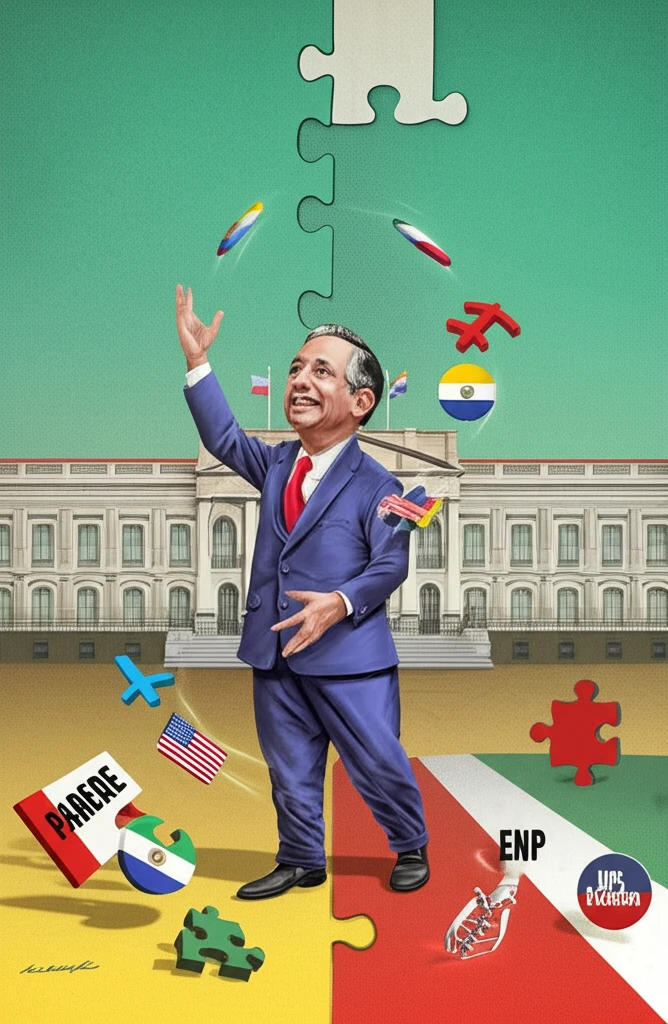
Latin America's Political Puzzle: Why Presidential Power Doesn't Always Win
"Uncover the surprising dynamics shaping legislative support for foreign policy in Latin America. Is presidential popularity enough to pass laws?"
In the vibrant landscape of Latin American politics, the relationship between a president and the legislature is a complex dance. It's not always a straightforward case of the executive branch leading and the legislative branch following. A critical question arises: what truly determines legislative support for a president's foreign policy initiatives? Understanding this dynamic is key to grasping the region's political realities.
Conventional wisdom suggests that a popular president, backed by a strong coalition, should easily get their policies approved. However, research reveals a more nuanced picture. Legislative behavior in Latin America is influenced by a unique interplay of factors, often defying expectations. This article dives into these surprising dynamics, exploring how political parties and politicians navigate presidential foreign policy.
Drawing on extensive research spanning eight countries and two decades, we'll unpack the key elements that shape legislative support. We'll move beyond simple assumptions about presidential power and delve into the roles of party ideology, coalition size, and the structure of the party system. Get ready to challenge your understanding of presidential influence and discover the hidden forces driving foreign policy in Latin America.
The Unexpected Drivers of Legislative Support: It's Not Just About Popularity

For many, the immediate assumption is that a president's popularity is the golden ticket to legislative success. If the people support the leader, shouldn't the legislature fall in line? While appealing, this idea doesn't fully capture the reality in Latin America. The research indicates that other factors wield considerable influence, sometimes even overshadowing presidential approval ratings.
- Political Party Ideology: Where a political party stands on the ideological spectrum significantly affects its willingness to support a president's initiatives. The study shows that ideological alignment, or lack thereof, plays a pivotal role in shaping legislative behavior.
- Size of the Governing Coalition: The extent to which the president's party can create alliances affects legislative dynamics. A larger coalition doesn't automatically guarantee more support.
- Effective Number of Parties (ENP): The structure of the party system is critical. The ENP, which reflects the number and relative strength of political parties, significantly impacts how easily a president can get their policies through the legislature. A fragmented party system can create gridlock, regardless of presidential popularity.
Challenging Assumptions, Embracing Complexity
The study's findings underscore the need to move beyond simplistic assumptions about presidential power and legislative behavior. While a president's popularity undoubtedly matters, it's just one piece of a much larger puzzle. The ideologies of political parties, the size of governing coalitions, and the effective number of parties (ENP) all play critical roles in shaping legislative support for foreign policy initiatives in Latin America. As the study reveals, a deeper understanding of these dynamics is crucial for anyone seeking to navigate the complexities of the region's political landscape.
